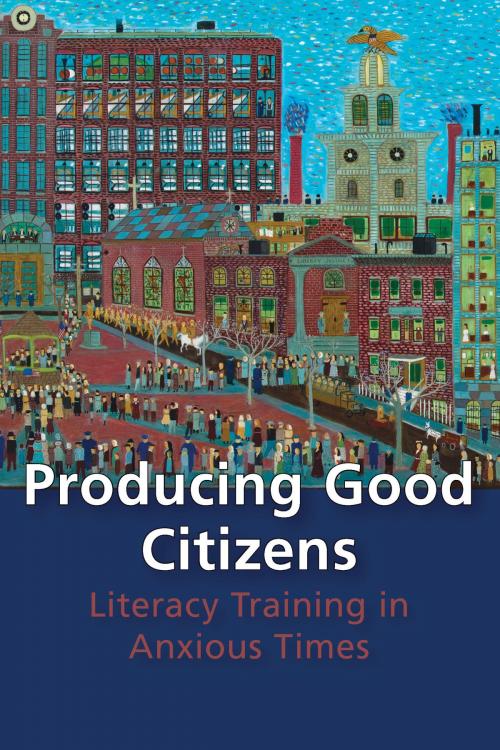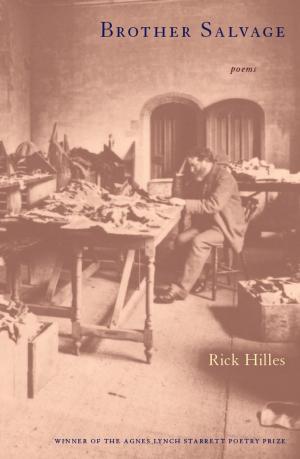Producing Good Citizens
Literacy Training in Anxious Times
Nonfiction, Reference & Language, Language Arts, Literacy, Writing & Publishing, Composition & Creative Writing| Author: | Amy J. Wan | ISBN: | 9780822979609 |
| Publisher: | University of Pittsburgh Press | Publication: | March 30, 2014 |
| Imprint: | University of Pittsburgh Press | Language: | English |
| Author: | Amy J. Wan |
| ISBN: | 9780822979609 |
| Publisher: | University of Pittsburgh Press |
| Publication: | March 30, 2014 |
| Imprint: | University of Pittsburgh Press |
| Language: | English |
Recent global security threats, economic instability, and political uncertainty have placed great scrutiny on the requirements for U.S. citizenship. The stipulation of literacy has long been one of these criteria. In Producing Good Citizens, Amy J. Wan examines the historic roots of this phenomenon, looking specifically to the period just before World War I, up until the Great Depression. During this time, the United States witnessed a similar anxiety over the influx of immigrants, economic uncertainty, and global political tensions.
Early on, educators bore the brunt of literacy training, while also being charged with producing the right kind of citizens by imparting civic responsibility and a moral code for the workplace and society. Literacy quickly became the credential to gain legal, economic, and cultural status. In her study, Wan defines three distinct pedagogical spaces for literacy training during the 1910s and 1920s: Americanization and citizenship programs sponsored by the federal government, union-sponsored programs, and first year university writing programs. Wan also demonstrates how each literacy program had its own motivation: the federal government desired productive citizens, unions needed educated members to fight for labor reform, and university educators looked to aid social mobility.
Citing numerous literacy theorists, Wan analyzes the correlation of reading and writing skills to larger currents within American society. She shows how early literacy training coincided with the demand for laborers during the rise of mass manufacturing, while also providing an avenue to economic opportunity for immigrants. This fostered a rhetorical link between citizenship, productivity, and patriotism. Wan supplements her analysis with an examination of citizen training books, labor newspapers, factory manuals, policy documents, public deliberations on citizenship and literacy, and other materials from the period to reveal the goal and rationale behind each program.
Wan relates the enduring bond of literacy and citizenship to current times, by demonstrating the use of literacy to mitigate economic inequality, and its lasting value to a productivity-based society. Today, as in the past, educators continue to serve as an integral part of the literacy training and citizen-making process.
Recent global security threats, economic instability, and political uncertainty have placed great scrutiny on the requirements for U.S. citizenship. The stipulation of literacy has long been one of these criteria. In Producing Good Citizens, Amy J. Wan examines the historic roots of this phenomenon, looking specifically to the period just before World War I, up until the Great Depression. During this time, the United States witnessed a similar anxiety over the influx of immigrants, economic uncertainty, and global political tensions.
Early on, educators bore the brunt of literacy training, while also being charged with producing the right kind of citizens by imparting civic responsibility and a moral code for the workplace and society. Literacy quickly became the credential to gain legal, economic, and cultural status. In her study, Wan defines three distinct pedagogical spaces for literacy training during the 1910s and 1920s: Americanization and citizenship programs sponsored by the federal government, union-sponsored programs, and first year university writing programs. Wan also demonstrates how each literacy program had its own motivation: the federal government desired productive citizens, unions needed educated members to fight for labor reform, and university educators looked to aid social mobility.
Citing numerous literacy theorists, Wan analyzes the correlation of reading and writing skills to larger currents within American society. She shows how early literacy training coincided with the demand for laborers during the rise of mass manufacturing, while also providing an avenue to economic opportunity for immigrants. This fostered a rhetorical link between citizenship, productivity, and patriotism. Wan supplements her analysis with an examination of citizen training books, labor newspapers, factory manuals, policy documents, public deliberations on citizenship and literacy, and other materials from the period to reveal the goal and rationale behind each program.
Wan relates the enduring bond of literacy and citizenship to current times, by demonstrating the use of literacy to mitigate economic inequality, and its lasting value to a productivity-based society. Today, as in the past, educators continue to serve as an integral part of the literacy training and citizen-making process.















